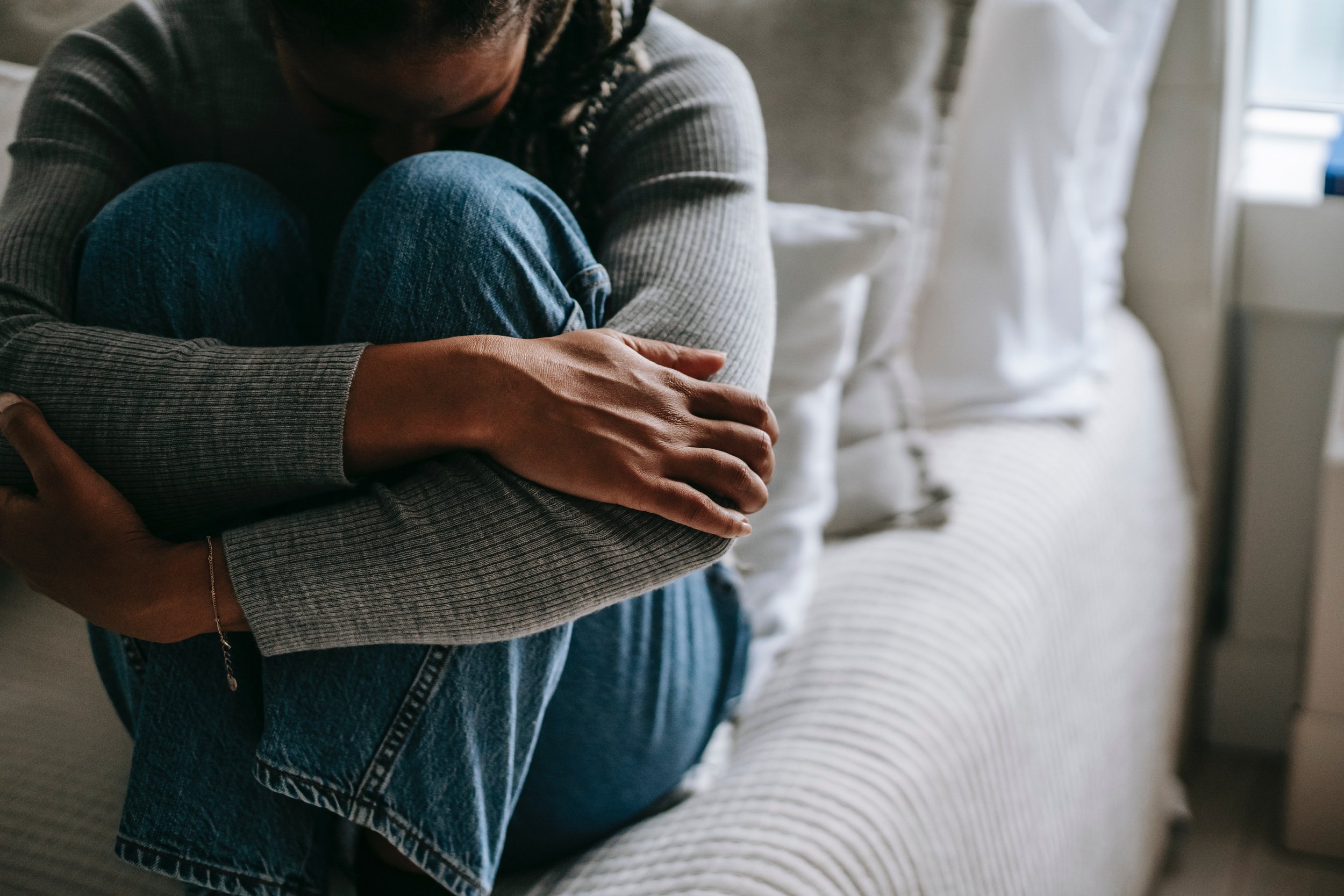How to Deal with Grief
Navigating the Depths of Grief
Grief is defined as “deep sorrow, especially that caused by someone's death.”
Beyond the Definition: The True Magnitude of Loss
This definition, although technically true, doesn’t quite reflect the magnitude of grief. It fails to capture the completely overwhelming feelings of loss, emptiness, and despair that accompany grief. It lacks the depth and tremendous strength that come from a lifelong relationship with grief. Because the truth is, grief doesn’t always go away. It will shrink, shapeshift, grow, and then shrink again because when we have loved something deeply and then lost it, it changes us.
Finding Support and Connection
We all go through grief at one stage of life or another, and it's a universal experience that we can find connection in.
We’d like to share some reminders for anyone experiencing grief right now, especially during this time after the Holidays; when family and friends have gone back to their lives and you may be feeling like your pain has been forgotten.
Creating a Safe Space for Expressing your Grief
Finding a safe space to openly express your grief is an important part of processing those feelings and ultimately being able to move through them. You may choose to find that safe space through community and having people that are able to empathize with what you are experiencing, which can help you to feel less alone. Some options are to join a support group, reach out to a friend or family member that has had the same experience, or speak with a grief counselor. Even schedule time each day to express it if you’re feeling overwhelmed by the needs of day to day life and unsure of where to put your grief.
Surrounding Yourself with Comfort
Surround yourself with loved ones that will allow you to simply be. Oftentimes those experiencing grief want their loved ones to think they “have it all together” and are “fine” because they don’t want to be met with pity/sympathy, or the heaviness of talking about their loss all of the time. This can leave you feeling isolated, and actually increase feelings of sadness and depression. Maybe you don't even do anything except watch a movie, but just having someone there with you can bring a sense of comfort.
Practicing Self-Care / Nurturing Yourself on "Good" Days
It's often said that grief is just love with nowhere to go, but you can give some of that love to yourself in big and small ways that feel good to you. On your “good” days you may choose to go on a walk, go for coffee with a friend, get a massage, or cook yourself your favorite meal. On the heavier days you may choose to brush your teeth/wash your face, put on a change of clothes, lightly stretch, journal, or eat a meal (order it in!).
Embracing Gentle Care and Radical Acceptance
Accept where you are, right here, right now. There is no “right” or “wrong” way to deal with the pain of grief and loss. There is no timeline or “shoulds” in healing. Radical acceptance may feel challenging; there could be pressure to return to work, to “just feel better” or “healed”, or to “suck it up” because the people around you aren’t able to hold space for challenging emotions like grief (also consider that you may be the person not able to hold space for your own emotions). We cannot get rid of our emotions through sheer will or suppression, they will stay with you and manifest in other ways. When we stop fighting our emotions and allow ourselves to feel them, they actually let go much easier. This doesn’t necessarily mean that the grief goes away, but the intense waves of pain may lessen or be shorter over time.
The Nonlinear Path ( or “Stages of Grief” )
Grief is often discussed in terms of "stages," but it's vital to understand that this journey is rarely a neat, linear progression. You might find yourself cycling through different feelings – anger, sadness, acceptance, denial, and back again – sometimes within the same day. There's no fixed timeline or "correct" order for healing; instead, it's a fluid, deeply personal process that ebbs and flows, with moments of intense pain interspersed with periods of calm, all part of the unique way your heart processes profound loss.
Above all, know that your feelings and experience are valid. Grief and loss are some of the hardest things that you can and will experience as a human. It seeps into every aspect of your life and has very real physical and emotional effects. Even when you feel completely alone in your grief, know that there is support out there.
Grief Group
For professional, community-based, and structured support, Spaces Therapy regularly hosts a Grief Groups. In this group, we will give space to connect with other young adults that have experienced a serious loss. This group is for individuals that had someone that they love die within the past two years. If you feel like you could use something like this, learn more by CLICKING HERE. Or if you’d like to speak with a grief specialist individually, you can learn more about ours here.
If you’re ready to get started, we’d be honored to be part of your journey reach out to us. Ready to get started? Book a consultation.




